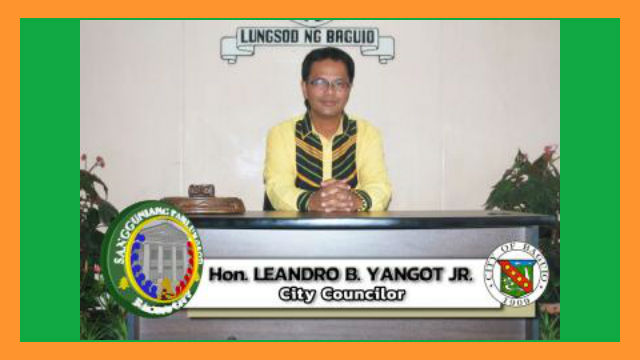BAGUIO CITY – The City Council approved on first reading a proposed ordinance known as the anti-political dynasty measure in the city.
The ordinance authored by Councilor Leandro B. Yangot, Jr. stated that it is a declared policy of the State to guarantee equal access to opportunities for public service and prohibit political dynasties defined under the proposed local legislative measure.
Under the proposed ordinance, no member of the immediate family or relative within the second degree of consanguinity or affinity or an incumbent elective official shall be allowed to hold or run in any city level elective office.
In case none of the candidates is related to an incumbent elective official within the second degree of consanguinity or affinity, but are related to one another within the said prohibited degrees, they shall also be disqualified under the ordinance.
Yangot explained the pertinent provisions of the local legislative measure shall be applicable in the 2019 mid-term elections and the ensuing local elections thereafter once enacted into law.
The ordinance stipulated that the Commission on Elections (Comelec) shall motu proprio or upon a verified petition of any interested party, deny due course to any certificate of candidacy filed in violation of the measure.
According to the proposal, any candidate, duly registered political party, coalition, organization or a person of voting age may file a verified petition to disqualify a candidate citing as ground, the provisions of the local legislative measure.
After due notice, the Comelec shall summarily hear and decide the verified petition for disqualification, and its decision shall be final and executory following the lapse of five days from receipt of the losing party.
Section 26 Article 2 of the 1987 Constitution provides that the State shall guarantee equal access to opportunities for public service, and prohibit political dynasties as defined by law.
Despite the constitutional provision, Yangot claimed there has been no law enacted to date regarding the status of political dynasties, nor the holding of an elective office by an incumbent’s family members nor, on occasion, of running for multiple political elective offices by immediate family members.
He explained at the moment, influential politicians and their families maintain positions of power and resources that deprive other deserving individuals to serve their constituents.
House Bills 172, 837 and 2911 as well as Senate Bill 2649 were introduced in both chambers of Congress purposely to prohibit political dynasties in the country but none of the said bills were ever deliberated upon by either chamber.
Yangot argued the pernicious effects of monopolizing political and economic power shuts the door not only on persons who cast their votes but also on those persons equipped with bright ideas and equally qualified for a public office, if not for the presence of political families or dynasties. He asserted a public office is not a family business and further, it is due to convenience, popularity, resources and incumbency that the voting public is swayed by political figures belonging to political families. By Dexter A. See













